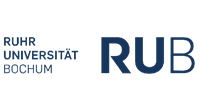La sufijación apreciativa en DICTER: formaciones lexicalizadas en la lengua científica española del Siglo de Oro
Abstract
This paper aims to study the appreciative affixes which are added to create new lexemes, particularly technical words of the Spanish language during the Renaissance. The situation that currently reflects the Dictionary of Science and Technology of the Renaissance (DICTER) will be taken as the starting point. This project about the specialized vocabulary constitutes a useful and indispensable tool to disseminate the vocabulary of science and technology of the sixteenth century and the beginning of the seventeenth. We also address the relationships established between scientific language, lexicography and morphology, because the last discipline mentioned belongs to the link between grammar and dictionary. The advanced word search in the computer application of this dictionary allow us to locate one hundred and forty derivative voices with the appreciative affixes -ato, -azo, -ejo, -ete, -ín / -ino / -iño, -illo, -ola, -ón, -ote, -ucho and -uelo, whose meanings must be examined and dated in order to verify the process of lexicalization. At the same time, we will classify this vocabulary according to their respective scientific fields (Architecture, Geometry, Engineering, Navigation, Tailoring, etc.), as well as compare these technical words in diachronic corpora with the purpose of examinating how this specialized vocabulary has been formed.
License
Copyright (c) 2018 Francisco Javier Sánchez Martín, Marta Sánchez Orense

This work is licensed under a Creative Commons Attribution 4.0 International License.



